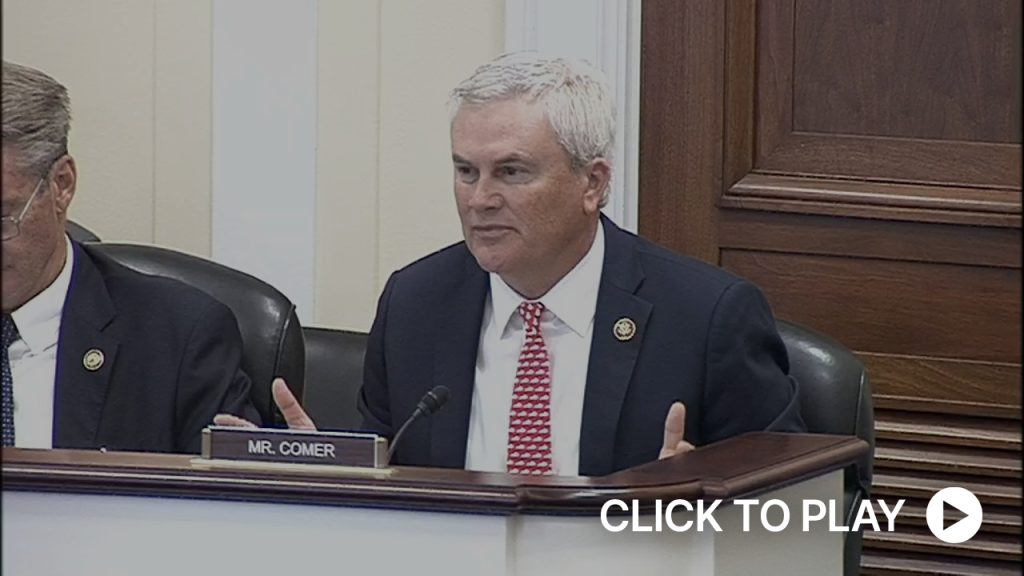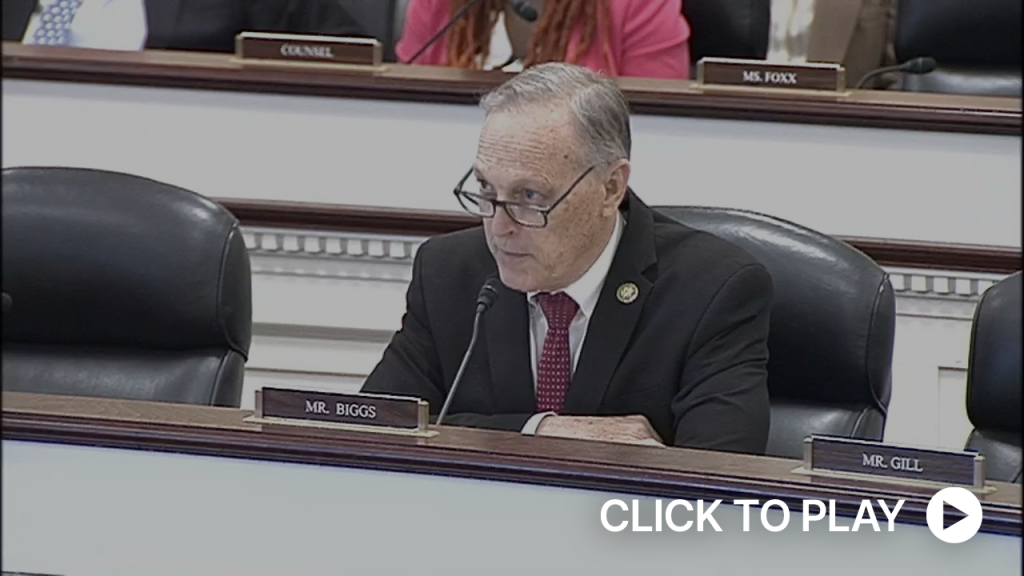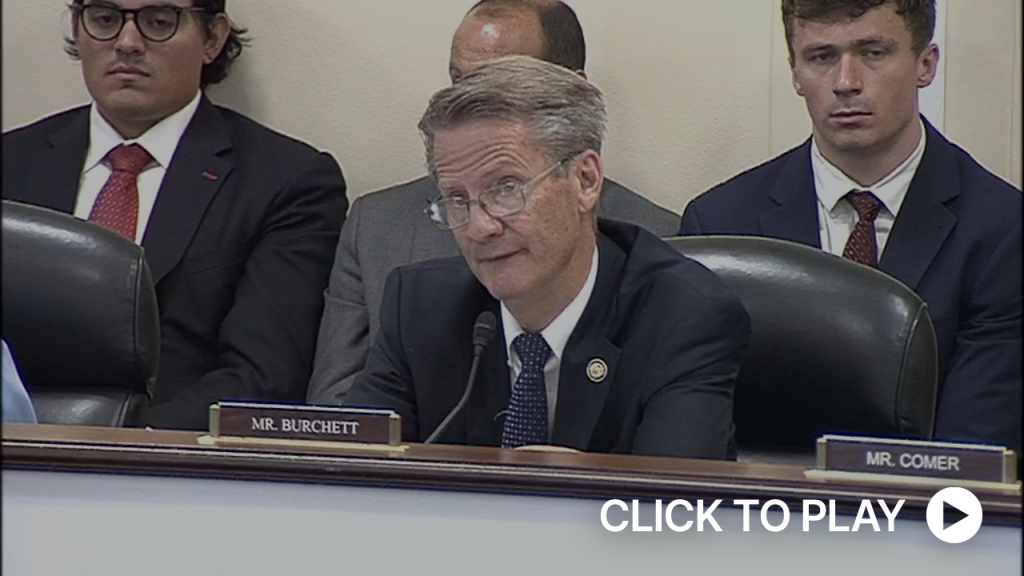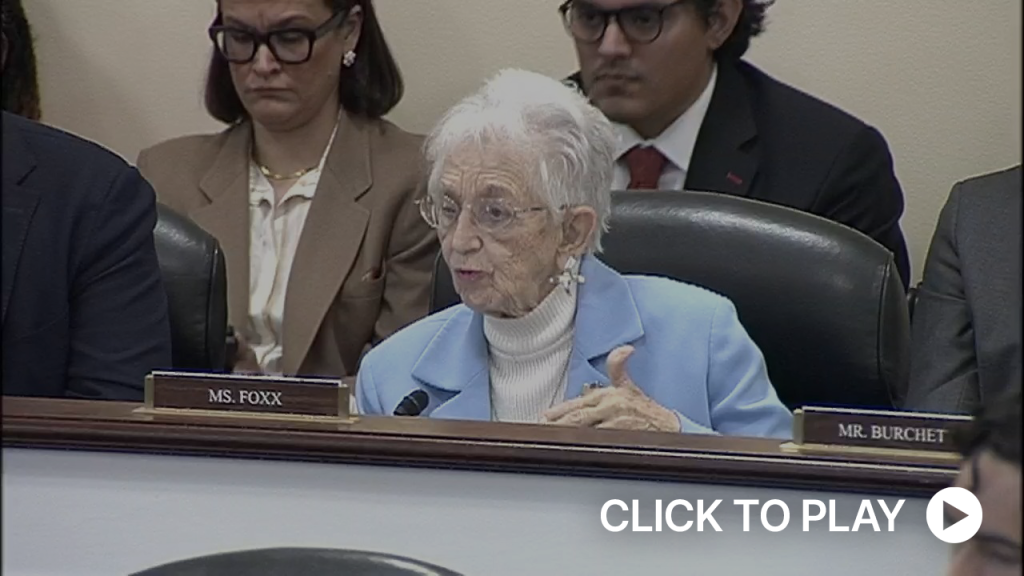
Hearing Wrap Up: DOD Fraud Risk Management Needs Improvement
WASHINGTON—The Subcommittee on Government Operations held a hearing today on “Safeguarding Procurement: Examining Fraud Risk Management in the Department of Defense.” At the hearing, members examined strategies to combat fraud in the Department of Defense (DOD) and the steps the DOD is taking to address these problems. Reducing the risk of fraud will save the Department and American taxpayers billions of dollars.
Key Takeaways:
For years, the DOD has not been able to adequately manage fraud risks or account for how much money has been spent and where its assets are held, wasting billions in taxpayer dollars.
- Subcommittee Chairman Pete Sessions (R-Texas) remarked in his opening statement that, “For years, GAO and others have reported that DOD has struggled to accurately account for the government property that contractors possess. This long-standing issue affects the DOD’s ability to produce fully auditable financial statements as we have discussed in this Subcommittee and in the Committee under our young Chairman, James Comer, for a number of years. It affects our ability to ensure that taxpayer money is being spent appropriately, and our service members are getting actually what they need because the taxpayer in this country is paying that bill. It affects our ability to prevent bad actors from exploiting vulnerabilities in the contracting system.”
- Mr. Seto Bagdoyan, Director of Forensic Audits and Investigative Services at the U.S. Government Accountability Office, stated in his opening testimony that “First, our analyses of about 2,700 adjudicated procurement fraud cases covering fiscal years 2015 to 2021 conclusively show that assertions to the contrary notwithstanding fraud and risk is indeed a problem at DOD. Second, DOD’s capacity to manage fraud risks falls well short across multiple fundamentals.”
The American people deserve to know how the DOD is spending their tax dollars and have certainty that fraud in government agencies can be prevented.
- Mr. Kelly P. Mayo, Deputy Inspector General for Investigations and Director of Defense Criminal Investigative Services at DOD Office of Inspector General, testified that “[Defense Criminal Investigation] investigations routinely lead to criminal convictions, civil False Claims Act recoveries and contractor debarments, returning billions of dollars to the government and preventing future losses. For example, in just the six-month period from October 24th to March 25, DCIS investigations resulted in more than $3 billion we recovered for taxpayers. To date, DCIS has 1,864 open investigations, including 478 cases of procurement fraud.”
The House Committee on Oversight and Government Reform and the Government Operations Subcommittee will investigate procurement fraud schemes and examine how much money the DOD could be saving if fraud were prevented.
- Subcommittee Chairman Sessions noted, “This Subcommittee is continuing to have conversations with not only the [Government Accountability Office], but also those within the Defense Department, including the Inspector General…We want to make sure agencies understand their responsibility to make sure taxpayer money is wisely spent. One of our first hearings this Congress was focused on preventing fraud rather than chasing fraudsters who have already run away with taxpayers hard earned dollars. Shining a light on contracting fraud within DOD and highlighting some commonsense strategies that can prevent this fraud is also what this conversation is about today.”
Member Highlights:
House Committee on Oversight and Government Reform Chairman James Comer (R-Ky.) inquired about the amount of fraud in the DOD.
Chairman Comer: “Do you, Mr. Bagdoyan, do you have an estimate of how much fraud there is at the Department of Defense?”
Mr. Bagdoyan: “I do not, Mr. Chairman. The numbers we have are based on what [Chairman] Sessions mentioned in his opening remarks. Essentially, confirmed fraud, which is massive.”
Chairman Comer: “Massive. And it’s been mentioned several times that DOD—the Pentagon— continues to fail audits, which is unacceptable, but they continue to do that.”
Mr. Bagdoyan: “If I may add, that what is confirmed is what’s been detected, investigated, and adjudicated. So, we don’t know what’s been missed.”
Rep. Andy Biggs (R-Ariz.) asked which government contracts with the DOD are most prone to fraud.
Rep. Biggs: “What red flags do you see again and again? And most importantly, how do we stop it before the money’s already out the door? So, it’s not about politics, this is a bipartisan issue. We’ve had this problem for decades under both brands. So, we just want to make sure the system works. So, my question for you—I’ll begin with Mr. Bagdoyan and then go to Mr. Mayo—I’m guessing you know some contracts are more prone to fraud than others. What are the common traits that tend to show up in a higher risk contract?”
Mr. Bagdoyan: “I would say, based on what I have seen, the big-ticket items seem to be more prone. And also, the subcontractor universe is even more susceptible than the primes. Basically, you know, there’s only a handful of prime contractors. They integrate many, many others, so the subcontracting area may be of particular interest.”
Mr. Mayo: “Yes, sir, I would agree with my colleague. Really, it’s about subcontractors. It’s a significant issue because we don’t see down there. We don’t see what’s underneath the contract, so we don’t see what’s going on with the contractors.”
Rep. Tim Burchett (R-Tenn.) highlighted the DOD’s inability to properly identify how much fraud occurs within the agency.
Rep. Burchett: “How much do you think the Department of Defense loses every year to fraud?”
Mr. Mayo: “I couldn’t really say, sir. I could probably ask people smarter than me and my staff, but I can get back to you on that.”
Rep. Burchett: “See, that’s part of the problem. They send you two guys in here, and I expect y’all are pretty honest guys, and you can’t even answer [the questions], and to me that just shows an inherent arrogance we have at the Pentagon. They haven’t passed eight audits. They haven’t even attempted to finish [the audits], and yet, they come up here and we give them more money…What fraud practice in the Department of Defense are we especially vulnerable to?”
Mr. Mayo: “Procurement fraud is especially the one that we see the most of, and we target that the most because [those are] the big dollar projects, so that would be my answer to that.”
Rep. Burchett: “It just seems like we’re letting these people steal from us.”
Rep. Virginia Foxx (R-N.C.) inquired about the biggest obstacle the DOD faces when identifying fraud.
Rep. Foxx: “What do you think is the biggest obstacle for DOD identifying cases of fraud or abuse before they occur? Is that the lack of having analytics?”
Mr. Bagdoyan: “That is a significant part of it. Also, it’s the commitment to look—if you don’t acknowledge that you have fraud, then you’re not really going to bother to have controls in place to figure it out.”
Click here to watch the hearing.
Distribution channels: U.S. Politics
Legal Disclaimer:
EIN Presswire provides this news content "as is" without warranty of any kind. We do not accept any responsibility or liability for the accuracy, content, images, videos, licenses, completeness, legality, or reliability of the information contained in this article. If you have any complaints or copyright issues related to this article, kindly contact the author above.
Submit your press release



